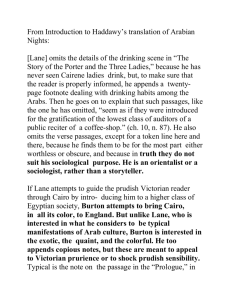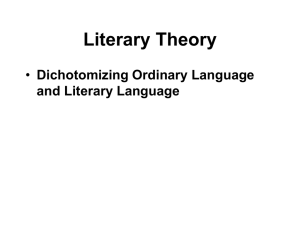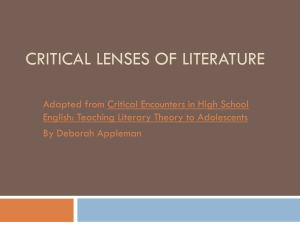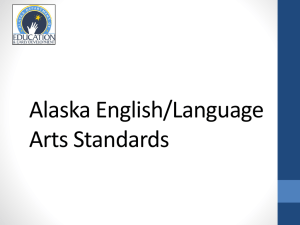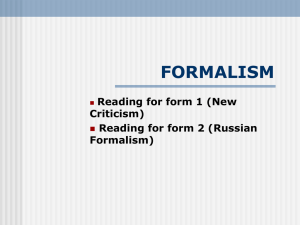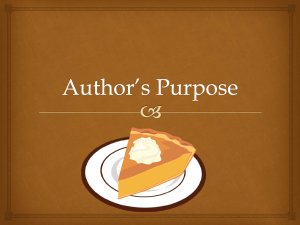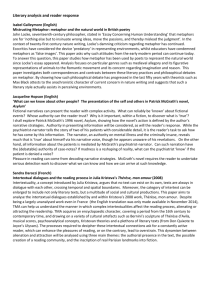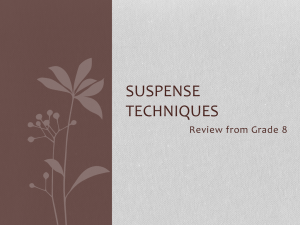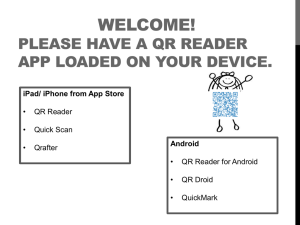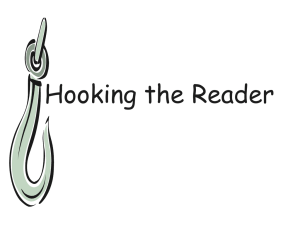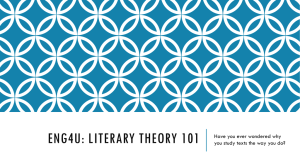Introduction to Literary Criticism
advertisement
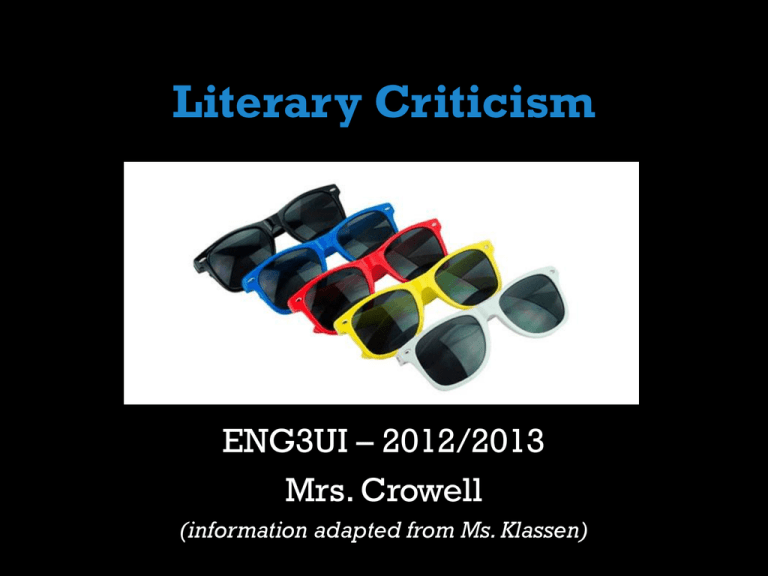
Literary Criticism ENG3UI – 2012/2013 Mrs. Crowell (information adapted from Ms. Klassen) Literary Criticism: An Introduction A DEFINITION: • Literary Criticism is the study, analysis and interpretation of a literary work. • The process of analysis is to examine literature through varied lenses to comment and judge the content’s qualities and techniques while understanding how it comments on the value of society. Literary Criticism: An Introduction A METAPHOR: • Literary critics wear lenses when they read texts. • These lenses colour or “filter” the way they experience, perceive and analyze a text. Reader Response Criticism “The systematic examination of the aspects of the text that arouse, shape, and guide a reader's response” (Henderson). What is “Reader Response”? • Focuses on the activity of reading a work of literature. • Puts forward the idea that a reader’s perception becomes more important than the plot, narration, characters, style and structure of the work. What is “Reader Response”? • Recognizes that there are limitations on the number and kinds of interpretations that are possible: the text itself limits theses interpretations. • Proposes that a reader interacts with two bodies of information that influence an interpretation: personal experiences and the text itself. Three Schools of Thought – Individualists – each reader has a unique set of experiences and beliefs that shape his or her interpretation of the text; therefore, each interpretation will be different. – Uniformists – there is one hypothetical reader – an “implied reader” who the author imagines when writing. – Social Readers – “interpretive communities” that have shared beliefs and values and therefore common understandings of a text; the group determines an acceptable interpretation of a text. Questions for the Reader Response Lens: 1. 2. 3. 4. 5. 6. What personal qualities or events relevant to this particular text might influence my response? How does the interaction of text and reader create meaning? What does a phrase-by-phrase analysis of a short literary text, or a key portion of a longer text, tell us about the reading experience prestructured by (built into) that text? Do the sounds/shapes of the words as they appear on the page or how they are spoken by the reader enhance or change the meaning of the word/work? How might we interpret a literary text to show that the reader's response is, or is analogous to, the topic of the story? What does the body of criticism published about a literary text suggest about the critics who interpreted that text and/or about the reading experience produced by that text? You will find these questions on your worksheet! (I just included them here for future reference…) Questions for the Reader Response Lens • With a partner, use the questions on the worksheet provided to analyze and examine the following two poems… • “My Song” by Rabindranath Tagore (p. 239 Viewpoints 11) • “You Walked Gently Towards Me” by Ben Okri (p. 241 Viewpoints 11) The Starry Night Vincent van Gogh (1889)
